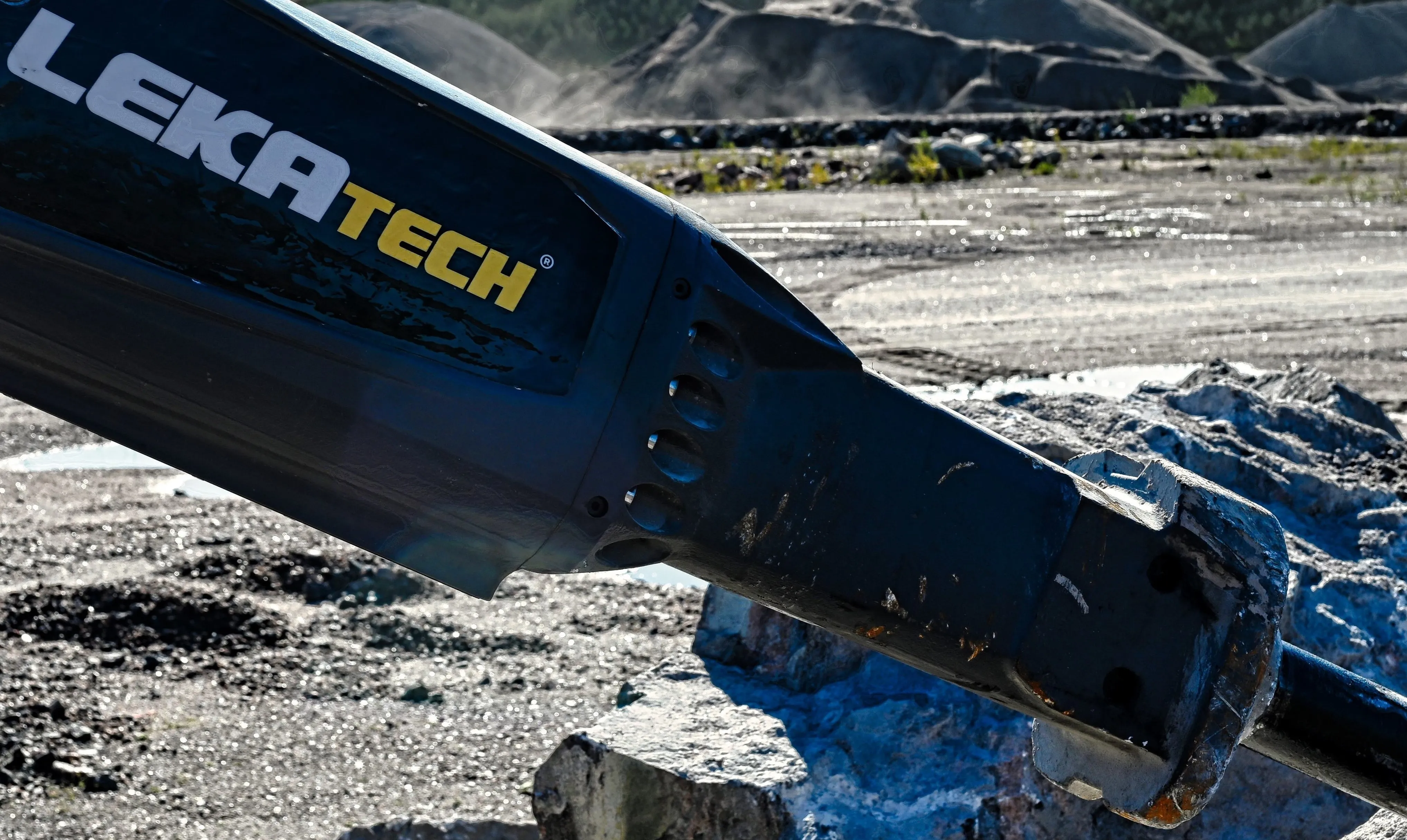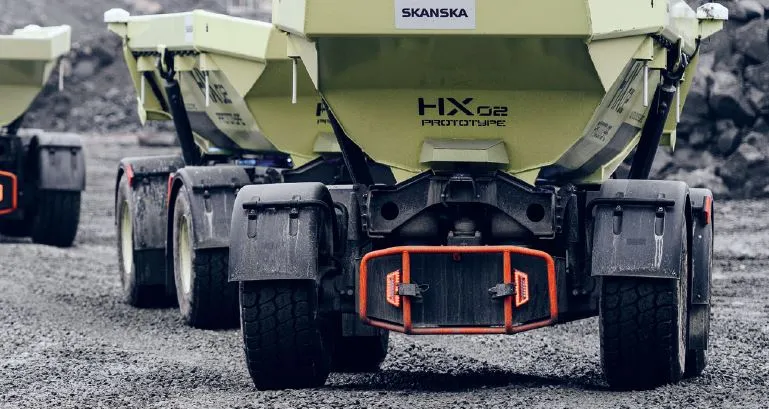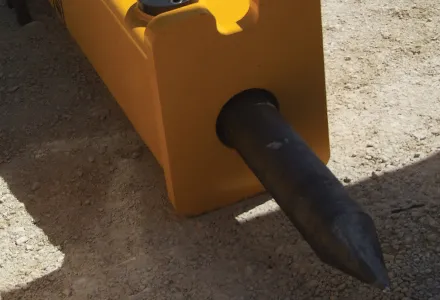
The Lekatech Electric has been used successfully for field trials at the Seepsula quarry in Finland using the services of two of Finland’s most experienced hammer operators.
The Lekatech unit features a new and patented linear electric motor technology. The firm claims that this offers a power to weight ratio superior to similar conventional hydraulic hammers. Coming to market at the same time as electric excavators, the unit meets a growing market demand for electric powered equipment and suits duties in zero or low emission areas.
Lekatech chose the Seepsula quarry, located close to the Helsinki-Vantaa Airport, and two experienced operators to test the new unit. The large quarry is the leading aggregate supplier in Southern Finland, with extensive experience in the use of a variety of equipment used in aggregate production.
During the field tests the two operators used the Lekatech Electric Hammer to break approximately 1m3 granite boulders, which would then be fed into the quarry’s crushing equipment. Tatu Lehmuskoski of Laitilan Linnee said: “In the beginning, I was surprised because the operator comfort was better than I expected. There was a lot of power, even though it was a rather small hammer.” Tatu added, “The noise and vibration levels were lower than with traditional hammers.”
Likewise, Jasper Kultanen of Suomen Räjäytyslouhinta was impressed with the Electric Hammer: “The hammer starts quicker and there is full power immediately, unlike with traditional hammers.” He also commented, “The hammer controllability is really good. You can operate the excavator engine with low idling. The power of the hammer is not dependent on the engine revolutions. This is very good for non-experienced operators.”
Kultanen continued, “The hammer is not kicking back to the excavator; I think the idle blow preventing system helps. The starting of the electric hammer is like starting an electric car, no delays with starting and full power available immediately. Low noise and vibration levels were positive surprises when trying out the hammer. The power seemed to be quite good considering the size of the hammer.”
Lekatech claims that its unit is designed with operator comfort in mind, delivering 70% better efficiency than hydraulic hammers, double the impact energy and 98% lower oil consumption. The firm says that these benefits were shown during field testing.









